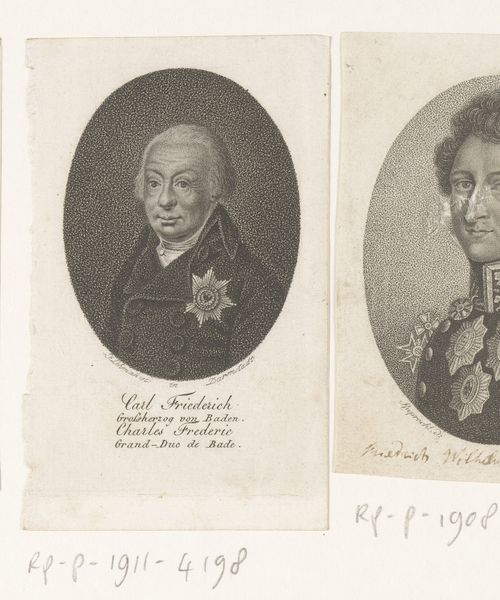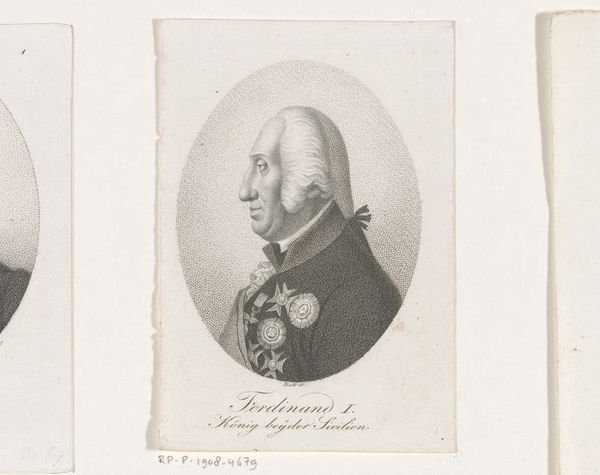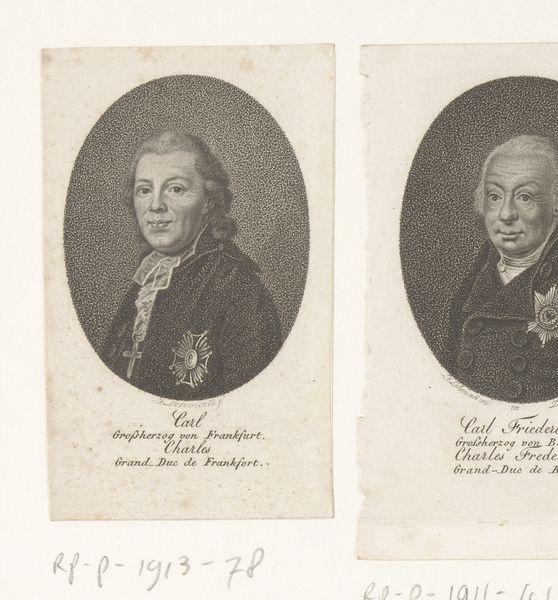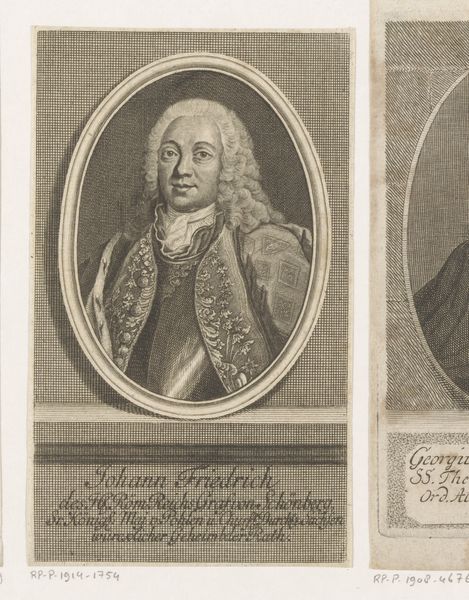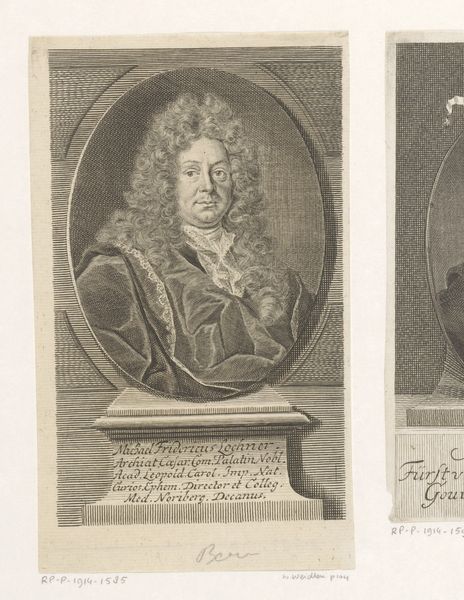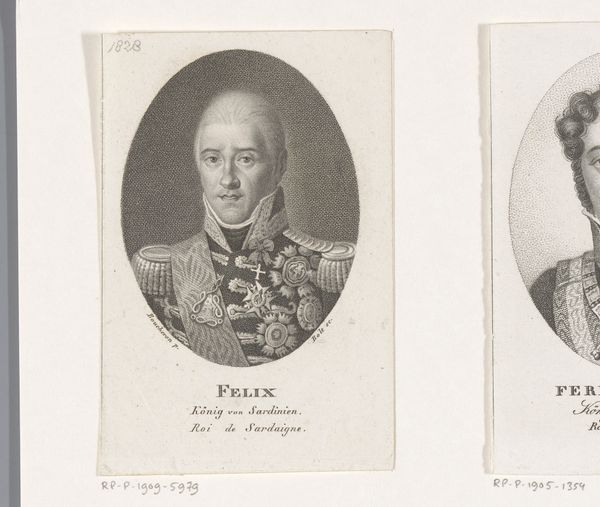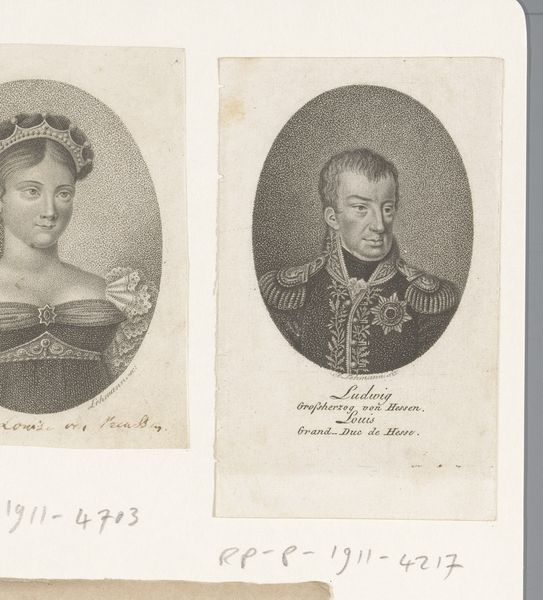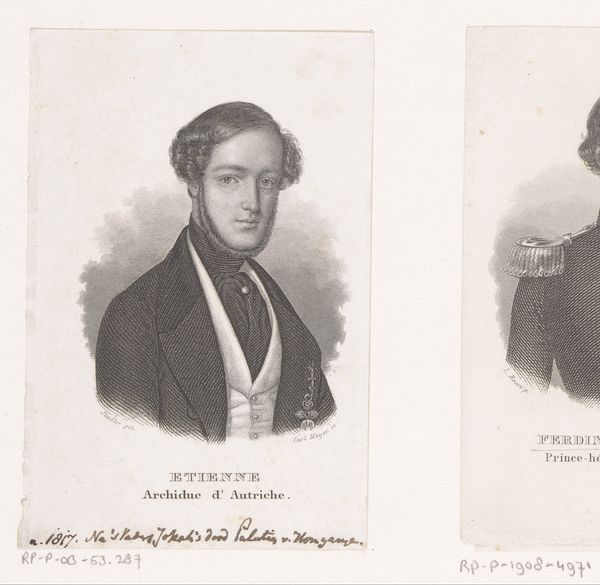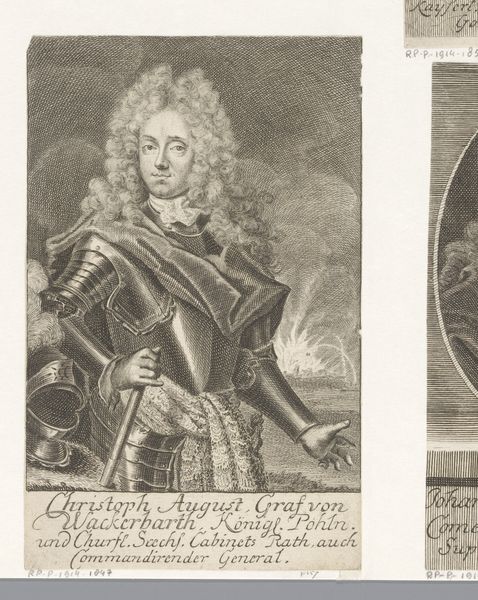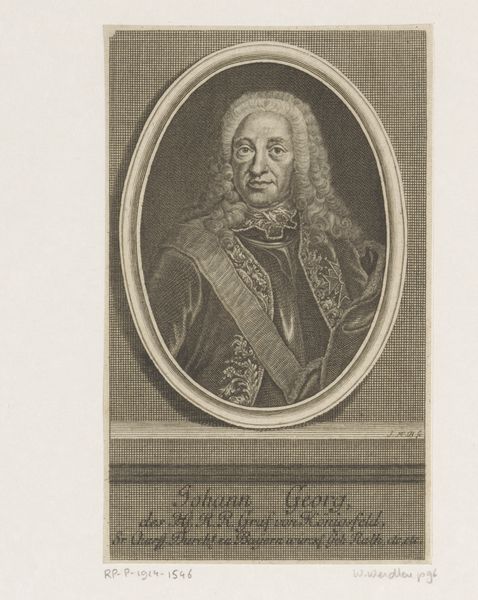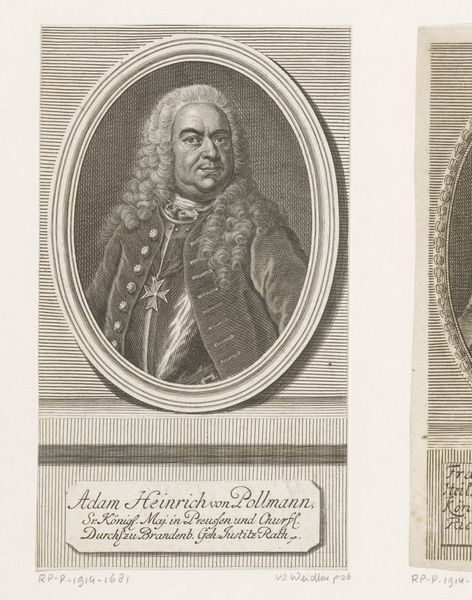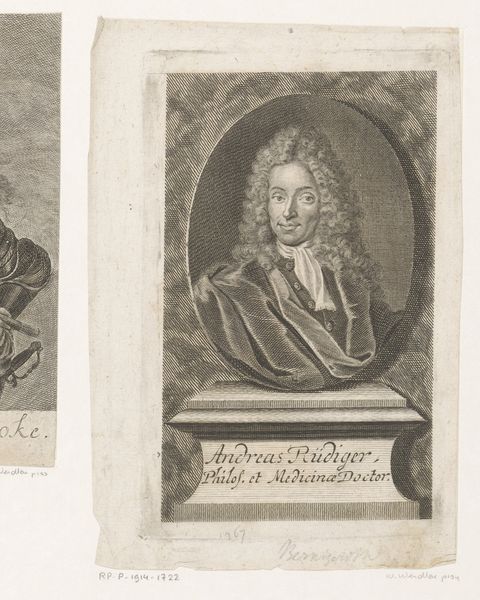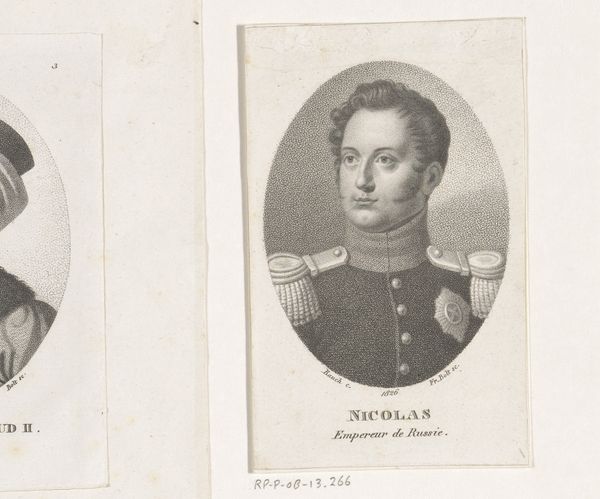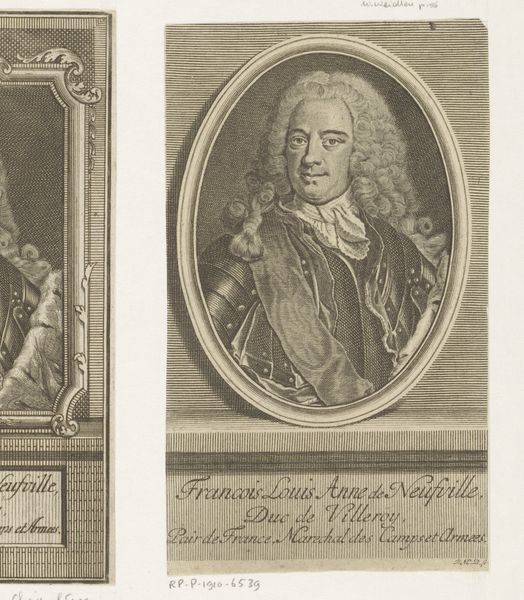
Portret van Friedrich Wilhelm III van Pruisen 1797 - 1886
0:00
0:00
friedrichleonhardlehmann
Rijksmuseum
print, intaglio, engraving
#
portrait
#
pencil drawn
#
neoclacissism
# print
#
intaglio
#
old engraving style
#
personal sketchbook
#
engraving
Dimensions: height 95 mm, width 68 mm
Copyright: Rijks Museum: Open Domain
Editor: So, this print, "Portret van Friedrich Wilhelm III van Pruisen," dating somewhere between 1797 and 1886, by Friedrich Leonhard Lehmann, is quite striking in its old engraving style. The detail is incredible for such a small intaglio print. What is your take on this depiction? Curator: It's fascinating to see how this print reflects the politics of image-making during that era. Portraits of rulers like Friedrich Wilhelm weren't just about capturing a likeness; they were tools for projecting power and legitimacy. The neoclassical style, visible here, with its emphasis on order and reason, aligns perfectly with the values these rulers wanted to associate with their reign. How do you see the composition reinforcing this? Editor: I guess the formal pose and the meticulous detail in his military attire do convey authority. But why a print, rather than a painting? Curator: Excellent question! Prints allowed for wider distribution. These images circulated, reinforcing the ruler's image and power among various levels of society. Think of it as early mass media shaping public perception. The use of engraving, an intaglio technique, adds to its historical value as a medium associated with meticulous craftsmanship, and one widely utilized by royal houses. What does the inclusion of another, less known aristocrat suggest to you, in its sketchbook-like presentation? Editor: It almost makes the portrait more accessible, more human, but still very calculated, thinking about its political function as you say. Seeing it as early mass media changes my perspective entirely. Curator: Precisely. We must see it not only as a piece of art but as a socio-political artifact. Examining these works allows us insight into how power operates, and how even now, such portraiture is employed to disseminate imagery to create cultural icons. Editor: That’s a great takeaway. Now I see how even an seemingly simple print has layers of meaning connected to the political and social context. Thanks!
Comments
No comments
Be the first to comment and join the conversation on the ultimate creative platform.
